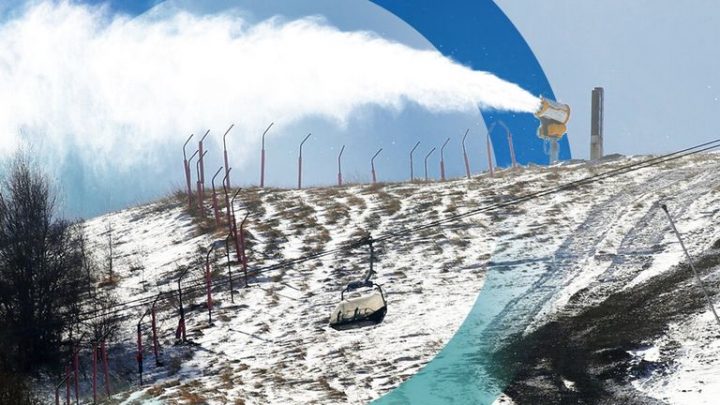
There are a lot of things about the 2022 Beijing Winter Olympics which are quite unique. The strict quarantine regime, the cozying up of Putin and Xi, the absence of foreign diplomats, and oh, the fact that none of the snow on the hills fell from the sky. All the snow that covers the ski and snowboarding venues at the Winter Olympics was made from water from reservoirs that supply about 400 automated snowmaking machines. By the end of the Games, approximately 2.5 million cubic meters of machine-made snow will have been made. Previous Games have had to rely on snowmaking machines before, but what sets this Winter Olympics apart is that virtually 100 per cent of the snow is man-made.
This may be a first for the Winter Games, but it won’t be its last. Climate change will disrupt and impact the organization and location of future Olympic Games. Sports that rely on outdoor snow are especially vulnerable to these climatic conditions, as are athletes. Not only does this impact the broader planning of the Olympics, but it also impacts the performance of Olympians. Many athletes have complained about how artificial snow impacts their performance. Furthermore, studies suggest that injuries, particularly in snowboarding events, are more common on artificial snow. This is also an additional expense to add to the already astronomical amount host cities send to hold the Games. The 2022 Winter Olympics reportedly cost $3.9 billion, although some estimates show the cost is much higher. As well, covering a mountain in fake snow can be harmful to the environment, which further contributes to the original problem.
As global temperatures rise, ski destinations around the world are experiencing shorter seasons and increasingly unpredictable snow levels. A report by Dr. Orr titled “Slippery Slopes: How Climate Change Is Threatening the Winter Olympics” suggests that only six of the 19 previous Winter Olympics locations could reliably host the Games by the 2080s under a high-emissions scenario. According to the research, February temperatures in these host cities have risen considerably in the last 70 years. Since 1950, these cities have experienced an average of a 4.8-degree Fahrenheit rise in temperature. Over that same period, Beijing has warmed 8.9 degrees Fahrenheit.
Northern latitudes that experience snowfall are experiencing some of the most rapid climatic changes and extreme weather events. It is unequivocal that climate change will affect the next Winter Olympics, as it has already affected these, and the impacts will be far greater. This is a cold truth for our warming world to accept. There are a slew of reasons the Olympics may become obsolete, and climate change now needs to be added to that list.
